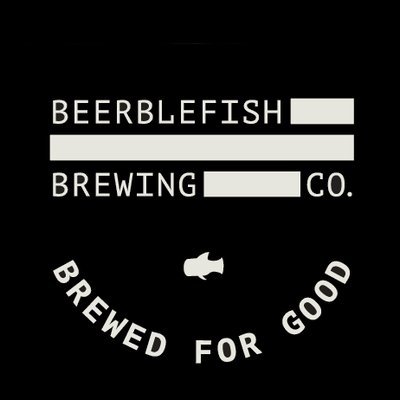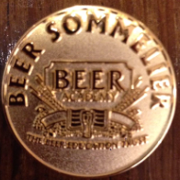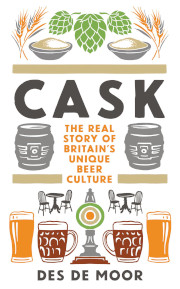
Closed brewery
Original site: 6 Georgiou Business Park, Second Avenue N18 2PG (Enfield)
Final site: 2A-4 Uplands Business Park, Blackhorse Lane E17 5QJ (Waltham Forest)
beerblefish.co.uk
First sold beer: October 2016 (at original site)
Ceased brewing: January 2025
Homebrewer James Atherton first brewed commercially as Beerblefish at UBREW late in 2015, but quickly decided he needed his own commercial-sized equipment. A year later, James and his partner Bethany Burrow were producing beer in an industrial unit in the Lea Valley on a 1970s-vintage 8 hl brewhouse made from converted Grundy tanks and sourced from the defunct Cox & Holbrook brewery in Suffolk.
Struggling to balance brewing with their day jobs, they brought in another UBREW user, Australian-born Glenn Heinzel, as a full-time brewer and operations manager. Glenn also has his own brewing operation, Tankleys.
Outgrowing the original site, in 2021 Beerblefish leased a larger space in the rapidly-growing brewing cluster along Blackhorse Lane in Walthamstow, next door to Exale. This opened as a taproom in July, with the brewing equipment relocated and production restarted in September. In November, the brewery added a larger brewhouse formerly at BBNo, though this wasn’t commissioned until spring 2022. Michaela Charles, formerly at Enefeld, Alphabeta and Clarence and Fredericks (see Volden), was taken on as head brewer.
The business aimed to be ethical and socially useful, for example helping retrain ex-Forces personnel. The origin of the name Beerblefish will be obvious to anyone familiar with the babel fish in Douglas Adams’ Hitchhiker’s Guide to the Galaxy.
Since then, the brewery has sadly gone the way of many others overwhelmed by the challenging conditions of the mid-2020s. It brewed its last in January 2025, with the taproom closing in March
Beers were mainly in cask and hand-bottled, with some keg, and all were vegan-friendly. Styles often nodded towards historic recipes and several used a mixed fermentation with Brettanomyces claussenii, a different wild yeast species to the more familiar B. bruxellensis which tends to produce a milder flavour profile.
Updated 22 April 2025.





Leave a Reply